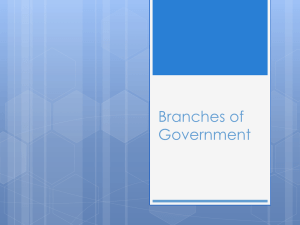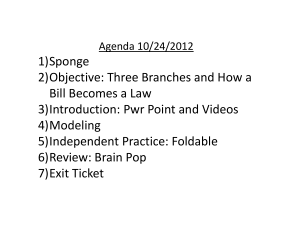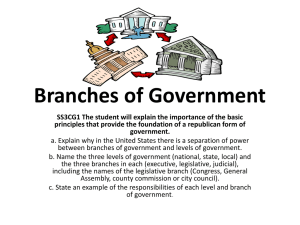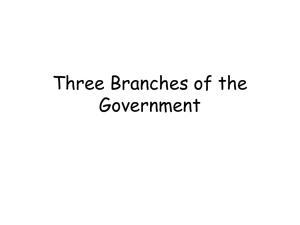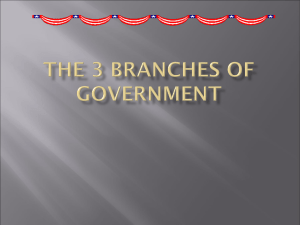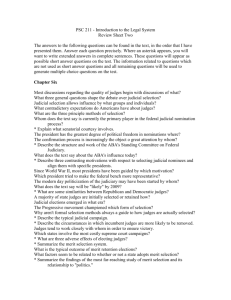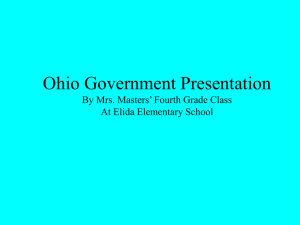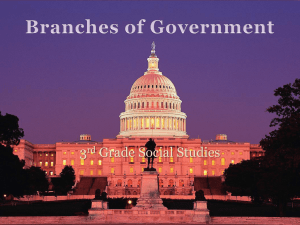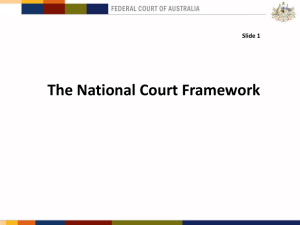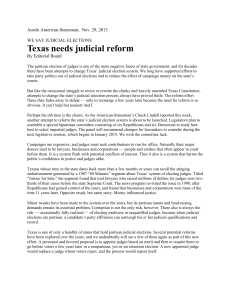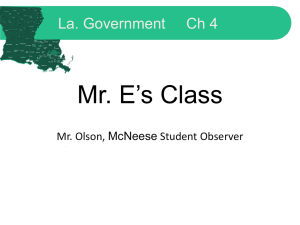9-12 Checks-Balances
advertisement
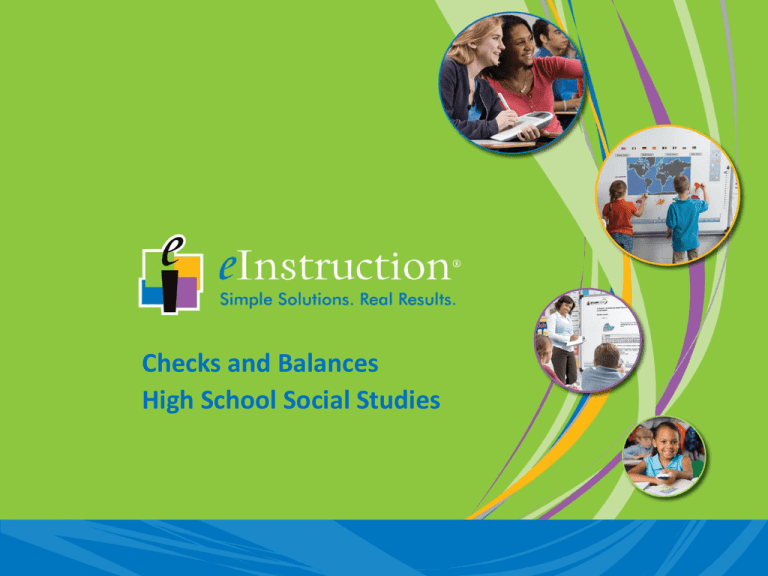
Checks and Balances High School Social Studies Teacher Notes Insight 360™ is eInstruction’s classroom instruction system that allows you to interact with your students as they learn, quickly gaining insight into student understanding during class so you can adjust instruction in real-time during a single class session. Use this content, designed specifically for use with Insight 360™, to interact with your class. This content includes brief instructional material and two types of activities: Constructed Response Activity for students to complete as an individual or a group assignment. Send each Constructed Response Activity to the Insight 360 iPad Student App. Assessment Item with CueTag™ for students to respond to via student response devices. Receive instant real-time feedback and longitudinal reports. Branches of Government The United States has three branches of government. Each branch has its own set of powers and is kept in check by the other two branches. No one branch has more power than the other two. The three branches of government are: • Executive Branch – President • Legislative Branch – Congress • Judicial Branch – Supreme Court Powers Executive Branch - President • Carries out laws • Vetoes bills Congress passes • Creates a budget • Makes treaties with other nations • Appoints judges in the Judicial Branch for a life term Judicial Branch – Supreme Court • Interprets laws • Decides whether laws made by Congress or orders by the President violate the Constitution Powers Legislative Branch – Congress • Can override a President's veto of a bill by 2/3 majority vote • Makes laws • Confirms presidential appointments for judges and justices • Can impeach (fire) the President for misconduct • Approves the President’s budget and treaties • Can remove judges from office for misconduct Fill in the chart. Power Interpret laws Creates a budget Appoints judges Makes laws Declares laws unconstitutional Confirms appointment of judges Branch Branch being checked Fill in the chart. Power Branch Branch being checked Interpret laws Judicial Legislative, Executive Creates a budget Executive Legislative Appoints judges Executive Judicial Makes laws Legislative Executive Declares laws unconstitutional Judicial Legislative, Executive Confirms appointment of judges Legislative Executive What power completes the table regarding checks and balances among the three branches of the federal government? Checks and Balances in the Federal Government Check on Executive Branch Check on Legislative Branch Check on Judicial Branch Executive Branch -- can veto bills ? Legislative Branch can impeach the president -- can impeach federal judge can declare executive actions unconstitutional can declare laws unconstitutional -- Judicial Branch a. b. c. d. can use military action to prevent votes appoints judges can have judges’ terms limited can transfer executive powers to states For information about Insight 360™, visit http://www.einstruction.com. For additional content samples, click here.
